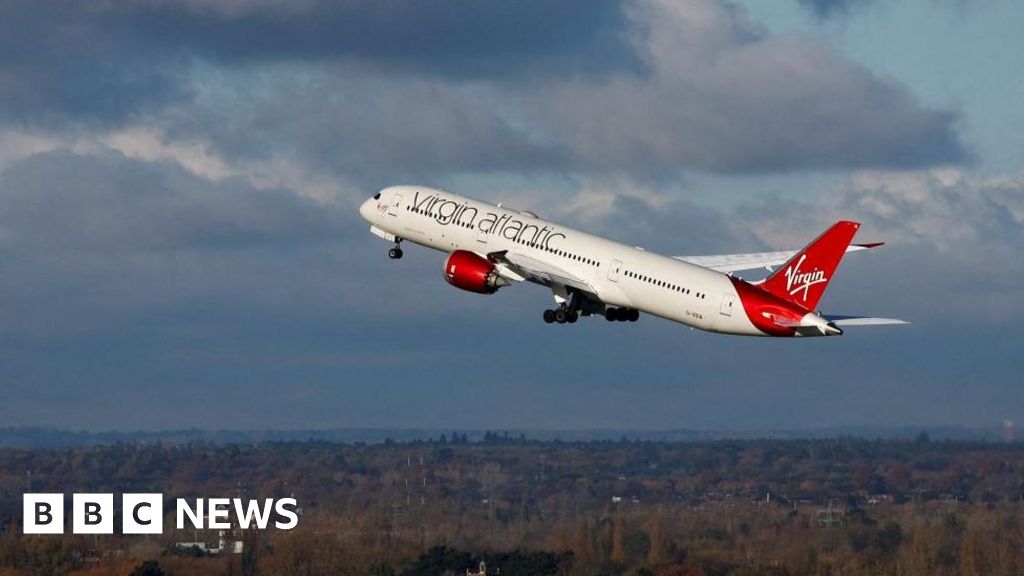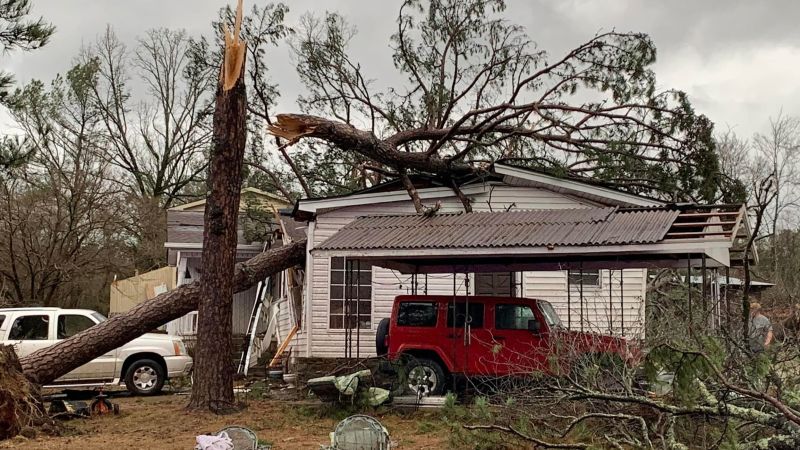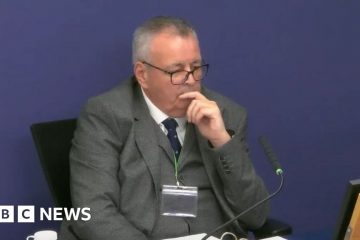The first transatlantic flight by a large passenger plane powered only by alternative fuels has taken off.
Operated by Virgin Atlantic, it is flying from London’s Heathrow to New York’s JFK airport.
Airlines see the flight, which is supported by government funding, as demonstrating that a greener way of flying is possible.
Airlines see the flight, which is supported by government funding, as demonstrating that a greener way of flying is possible.
The flight is a one-off of its kind so far, and is not carrying fare-paying passengers.
So-called sustainable aviation fuels (SAF) can be made from a variety of sources, including crops, household waste and cooking oils.
For this flight, a Boeing 787 has been filled with 50 tonnes of SAF. Two types are being used, with 88% derived from waste fats and the rest from the wastes of corn production in the US.
Following test and analysis, the flight was approved by UK regulator the Civil Aviation Authority earlier this month. A number of companies have been involved in the project including engine-maker Rolls-Royce and energy giant BP.
The aviation industry is particularly difficult to decarbonise, but airline bosses view SAF as the most effective tool available to help bring its net emissions down to zero.
The first transatlantic flight by a large passenger plane powered only by alternative fuels has taken off.
Airlines see the flight, which is supported by government funding, as demonstrating that a greener way of flying is possible.
Operated by Virgin Atlantic, it is flying from London’s Heathrow to New York’s JFK airport.
The flight is a one-off of its kind so far, and is not carrying fare-paying passengers.
Airlines see the flight, which is supported by government funding, as demonstrating that a greener way of flying is possible.
Airlines see the flight, which is supported by government funding, as demonstrating that a greener way of flying is possible.
The flight is a one-off of its kind so far, and is not carrying fare-paying passengers.
So-called sustainable aviation fuels (SAF) can be made from a variety of sources, including crops, household waste and cooking oils.
For this flight, a Boeing 787 has been filled with 50 tonnes of SAF. Two types are being used, with 88% derived from waste fats and the rest from the wastes of corn production in the US.
Following test and analysis, the flight was approved by UK regulator the Civil Aviation Authority earlier this month. A number of companies have been involved in the project including engine-maker Rolls-Royce and energy giant BP.
The aviation industry is particularly difficult to decarbonise, but airline bosses view SAF as the most effective tool available to help bring its net emissions down to zero.
#Groundbreaking #transatlantic #flight #greener #fuel #takes
Note:- (Not all news on the site expresses the point of view of the site, but we transmit this news automatically and translate it through programmatic technology on the site and not from a human editor. The content is auto-generated from a syndicated feed.))



